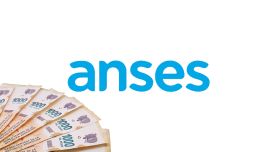Mercado Pago, the digital wallet and financial services arm of MercadoLibre, will request a banking licence from Argentina’s Central Bank as part of its effort to expand its ecosystem, according to a statement Wednesday.
The goal is to offer more services through its fully digital model as the move follows similar steps already taken in Brazil and Mexico.
“We’re building Latin America’s largest digital bank,” Juan Martín de la Serna, President of MercadoLibre Argentina, said in the statement. “In a region where many still lack access to quality financial services, we want to reshape how people interact with the financial system.”
Shares of MercadoLibre were down 0.27 percent in New York to US$2,549 per share, trimming a decline of as much as one percent earlier in the session. The stock is up nearly 50 percent so far this year, well above benchmark indexes.
The announcement comes a week after Chief Executive Officer and Founder Marcos Galperin announced he’ll step into the role of executive chairman starting January 1, 2026, after steering the company for more than two decades. Ariel Szarfsztejn, a longtime executive and current commerce president, will take over as CEO. In an open letter, Galperin praised Szarfsztejn’s leadership and said he has “the necessary culture to guide MELI for many more years.”
MercadoLibre, known as MELI by its stock ticker, wants to capitalise on the growth currently taking place in Argentina’s economy.
“This is a timely move for MELI. First-quarter earnings showed a meaningful contribution from Argentina, and MELI is now poised to make the most of its home-market advantage,” said Malcolm Dorson, senior portfolio manager at Global X Management. “Banks in Argentina are growing their loan books at over 50 percent annually, and fintechs enjoy a strong cost advantage.”
The move adds to MercadoLibre’s decision to invest US$2.6 billion in Argentina this year and stands to make it more competitive in its home country where competitor Ualá already has a banking licence.
At a regional level, the e-commerce giant announced plans in April to boost its workforce by 33 percent to 112,000 employees, while it will invest US$5.8 billion this year in Brazil, its largest market.
by Ignacio Olivera Doll & María Clara Cobo, Bloomberg



















Comments